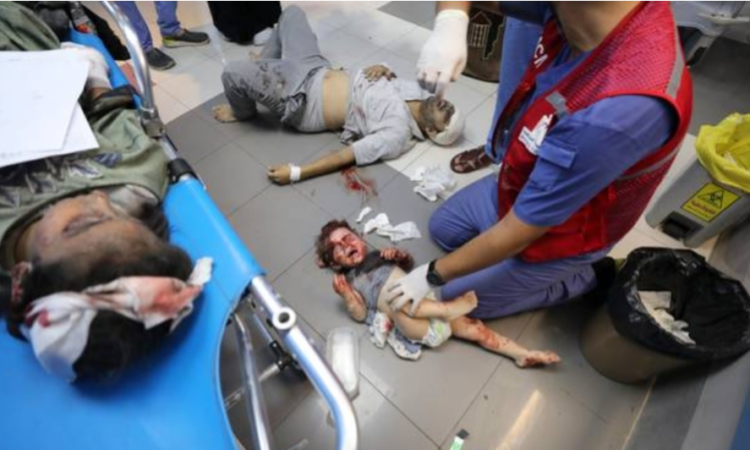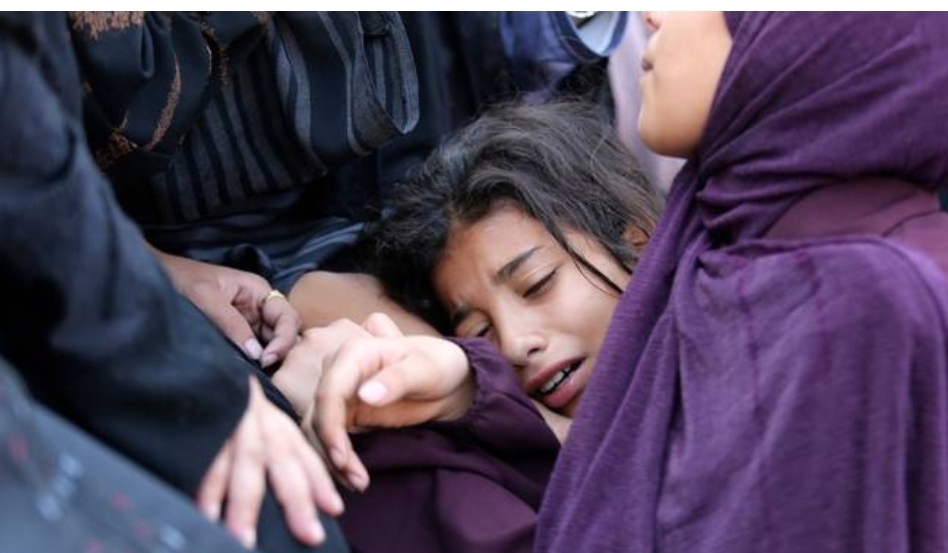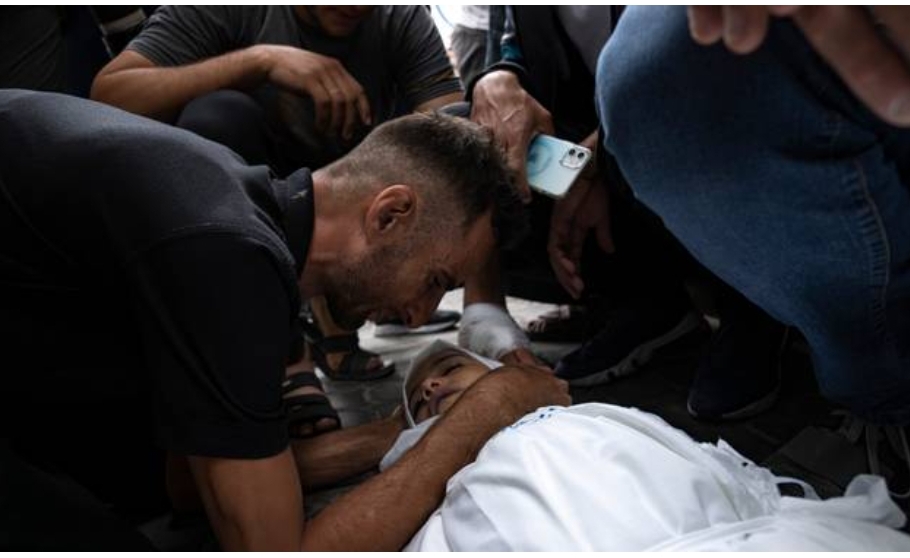
Children under the age of 18 make up half of Gaza’s 2.3 million population and are already suffering medical and mental health crisis under a 16-year blockade.
At least 1,537 people have been killed in Gaza, over 400 of which are children, according to the Palestinian Ministry of Health, as Israel continues its seventh day of bombardment on the besieged enclave following Hamas’ ground and air attack into the south of the country.
Hamas’ “Al Aqsa Flood” operation, resulting in the death of over 1,300 Israelis, has been internationally condemned while Israel’s retaliation on the people of Gaza has received little to no condemnation from Western officials and the international media.
Unconfirmed reports, espoused and repeated by Israeli Prime Minister Benjamin Netanyahu and United States President Joe Biden, that Hamas fighters beheaded 40 Israeli children, have received more condemnation than Israel’s indiscriminate missile strikes on Gaza’s densely populated residential neighbourhoods.
A horrific tweet purporting to show an image of a burnt Israeli baby has been confirmed to be AI-generated.
Gaza’s population of 2.3 million people are already under a 16-year-long Israeli blockade, which, according to the United Nations, has rendered the Palestinian territory unlivable. Half of the population are children under the age of 18.
According to the Defense for Children International (DCI), a Palestinian human rights organisation focused on child rights, since 2005, six major military offensives in Gaza have killed at least 1,000 Palestinian children.
These photos are documentary evidence of Israel’s barbaric action on Gaza’s civilian population.
Medical crisis
On Wednesday Doctors Without Borders reported that 100 percent of patients received in its clinics within a period of 24 hours were children.
The Palestinian Health Ministry warned Wednesday of a disruption to healthcare services across Gaza as hospitals don’t have enough beds to accommodate the wounded from Israel’s bombardments.
“Hospitals have run out of bed capacity. The injured and ill people are on the floor as the Israeli aggression intensifies,” the ministry said in a statement.
It said the continued Israeli cutting of electricity, water and fuel “poses a danger to the lives of the injured and ill and will lead to a disastrous health and environmental catastrophe.”
Israeli Defence Minister Yoav Gallant announced a complete blockade of Gaza on Monday, cutting off already restricted supplies of water, food, electricity and medical aid, justifying the move by describing Palestinians as “beastly people”.

Mental health crisis
According to a 2022 report by Save the Children, four out of five children in Gaza are living with depression, grief and fear, while more than half struggle with suicidal thoughts.
“It is now more critical than ever that the government of Israel lifts the blockade of the Gaza Strip, and that local authorities, the international community and donors support the rapid strengthening of child protection and mental health support services for affected children,” Save the Children said.
In the past 16 years, children in Gaza have now endured six major escalations in violence and the COVID-19 pandemic – in addition to the Israeli-imposed, life-limiting land, air, and sea blockade.
Over 800,000 children in Gaza have never known life without the blockade.
Collective punishment
According to the Palestinian Ministry of Health, women and children in Gaza are suffering approximately 60 percent of the injuries in the ongoing Israeli bombardment of the region.
In response to Israel’s further restrictions on the people of Gaza, Amnesty International’s Secretary General Agnès Callamard said on Thursday: “The collective punishment of Gaza’s civilian population amounts to a war crime – it is cruel and inhumane.”
As the occupying power, Israel has a clear obligation under international law to ensure the basic needs of Gaza’s civilian population are met.”
In June last year, an independent commission established by the UN Human Rights Council focused on the occupied Palestinian territories, said occupation and discrimination are the key root causes of the recurrent tensions, instability, and drawn-out nature of the conflict in the region.





